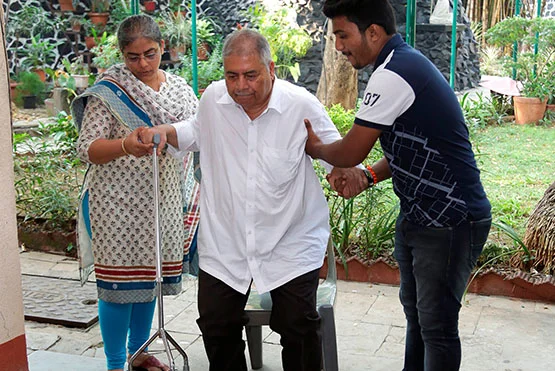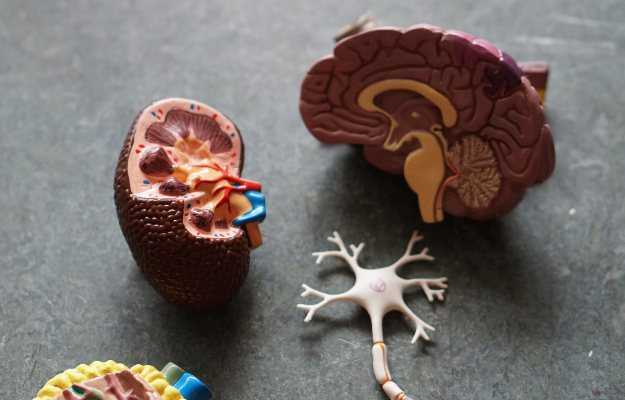Movement Disorders
Move towards a happier life by managing Movement Disorders.
Movement Disorders Treatment Centre


Symptoms of
Movement Disorders
Symptoms can manifest themselves in many different ways, it’s important to talk to a Neurologist about what might be causing them and how best to treat them. At NHS Neuro Care, we assist individuals with movement disorders in achieving the highest level of independence in all facets of everyday life.
Common Movement Disorders
- Ataxia : The region of the brain that regulates coordinated movement is impacted by Ataxia. Signs of ataxia include uncoordinated or sloppy balance, speech, or limb motions. It can be brought on by a variety of factors, including hereditary and degenerative conditions. Another ailment that may be treated, such as an infection, can also produce ataxia.
- Dystonia : This syndrome causes twisted, repeated motions and long-lasting involuntary muscular spasms. One body part or the entire body may be impacted by dystonia. When the neck muscles spasm uncontrollably pulls the head to one side or tilt forward or backward or could shake it is known as Cervical Dystonia.
- Chorea : Involuntary motions that are short, erratic, repeated, and fairly quick are known as Chorea. The face, lips, trunk, and limbs are frequently used in the movements. Chorea might resemble excessive fidgeting.
- Functional Movement Disorders : Any movement abnormality may be similar to this illness. Functional movement disorder is curable and are not caused by a neurological condition.
- Huntington’s Disease : Genetic tests can prove that this is a hereditary, progressive condition. There are three aspects to Huntington’s disease:
- Erratic mobility
- Cognitive issues
- Psychological symptoms
- Progressive Supranuclear Palsy : This is an uncommon neurological condition that affects walking, balance, and eye movements. Even though it occasionally may mimic Parkinson’s disease but it is a separate disorder.
- Multi System Atrophy : This unusual neurological condition develops with time and affects several brain systems. An ataxic or parkinsonian movement condition is brought on by multiple system atrophy. There are a multiple systems in the brain which are affected by this condition and they are involved in variable combinations. The system and the signs of the disease as a total picture leads us to the diagnosis of this condition. In addition, it may result in playing out nightmares, low blood pressure, and poor bladder function.
- Myoclonus : This syndrome causes muscles to twitch violently in an instant.
- Restless Leg Syndrome : When relaxing or lying down, this movement problem creates uncomfortable leg sensations that are frequently eased by movement.
- Tardive Dyskinesia : Long-term usage of certain medications known as neuroleptic medicines, which are used to treat mental problems, results in this neurological illness. Repetitive and unconscious motions like grimacing, eye blinking, and others are brought on by tardive dyskinesia.
- Tourette Syndrome : This neurological disorder manifests as repeated motions and vocal noises between the ages of childhood and adolescence.
- Tremor : The hands, head, or other body parts shake rhythmically as a result of this movement disease. Essential tremor is the most prevalent kind.
- Wilson’s illness : An uncommon, genetic illness causes the body to accumulate excessive levels of copper, which can lead to neurological issues including dystonia, tremor, parkinsonism, or ataxia.
Movement Disorders Treatment
- Physical Activity : For independence, mobility, strength, balance, and movement at every stage of rehabilitation.
- Language therapy : Assess and improves a person’s memory and voice, as well as their reading, writing, speaking, and understanding abilities.
- Workplace Therapy : Helps you recover independence via normal life activities (ADLs).
- Programs for Recreation and Leisure : Improves quality of life, builds skills, and rekindles the spirit.
The loss of some brain nerves can cause trembling and movement problems in people with movement disorders. Some individuals may eventually have some kind of disability, including social embarrassment, difficulty writing, eating, and drinking. If you think your patient’s movement disorder is affecting their daily life or giving them problems, visit the movement disorder specialists at NHS Neuro Care. Our neurologist will analyse the clinical symptoms and medical history and do a comprehensive physical examination. The patient will go through the diagnosis that will help in determining the needs, and if there is a need of any more tests.
Treatments
Social links
Contact us
NHS Hospital, Near Sports College, 300m From Kapurthala Chowk, Jalandhar, Punjab, India. Pin code : 144008
neurocare@nhshospital.in
+91 9888173033
0181 4633333
